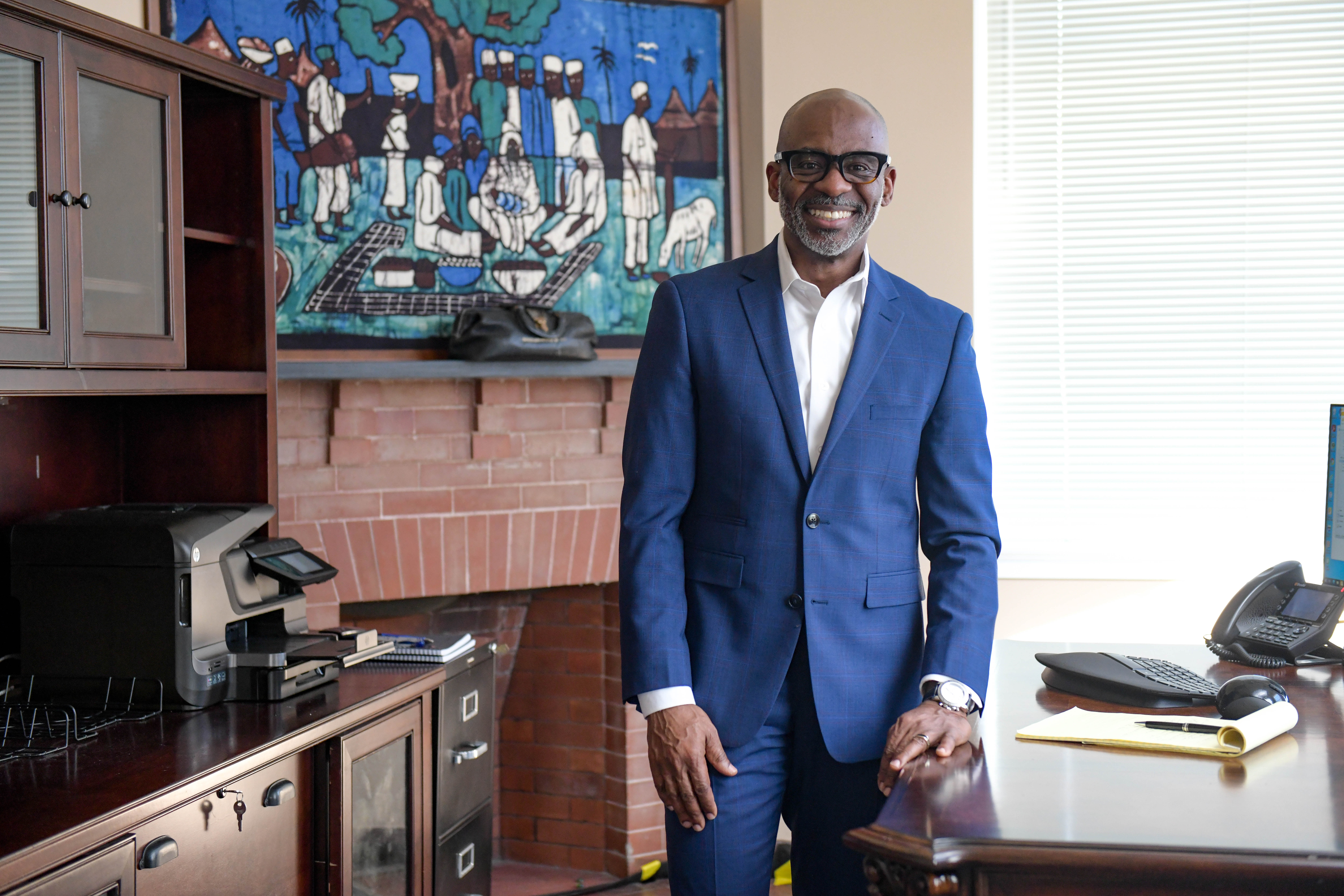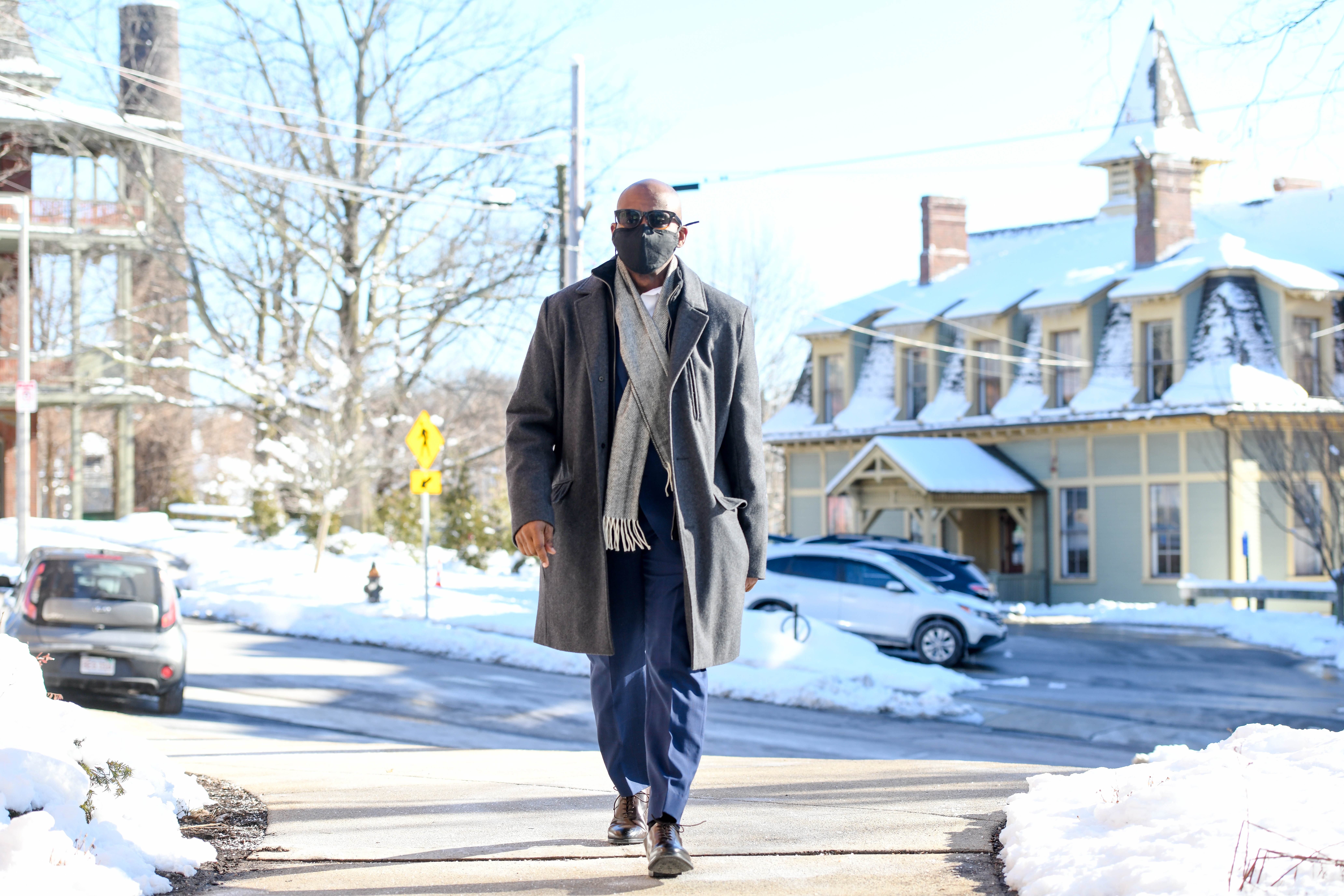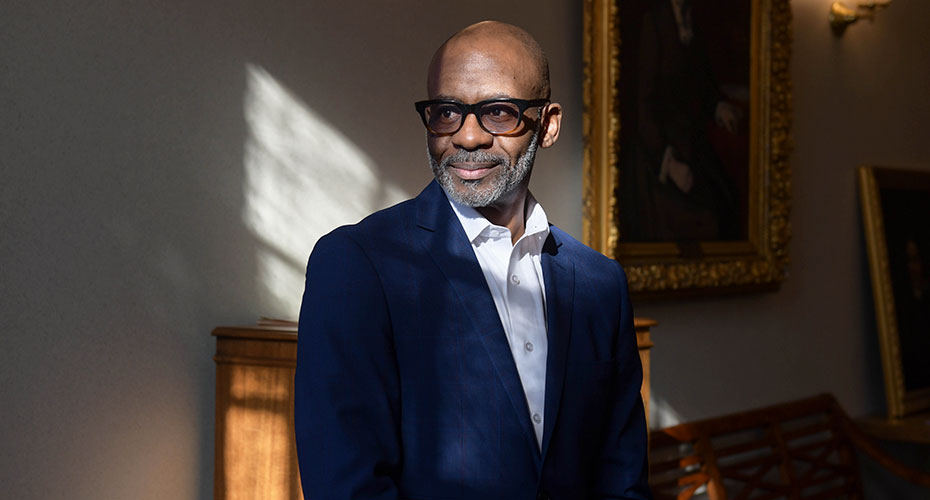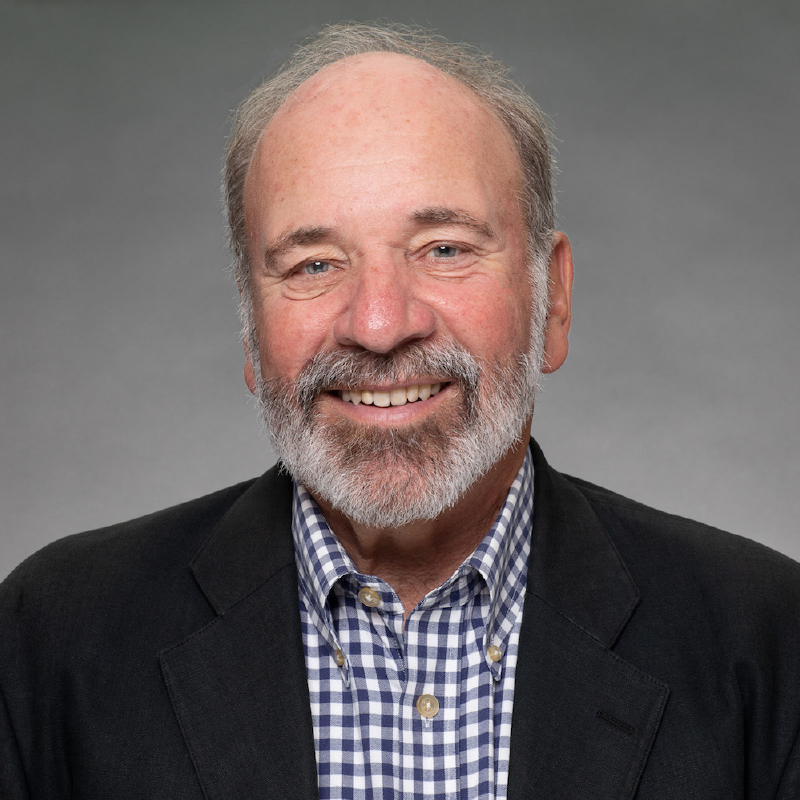Feb 9, 2021
Battling a pandemic, with science and empathy
“Part of what makes this pandemic so very real to me,” Dr. Charles Anderson said recently, “is that one of my best friends in the world was among the first thousand people to die in the U.S. from COVID. I still have his last text message to me from the ICU telling me that he was going to be out for a few days as they were inserting a breathing tube.”
“I was 15 years old when I landed at Princeton and met Gary Jenkins,” he explained. “And I got through the experience of being that young in that environment because I was surrounded by people like Gary who looked out for this skinny little kid from upstate New York. To lose him after 40-plus years of friendship underscores for me the urgency of this pandemic and my role as a physician leader.”
At the start of this year, a year filled with challenges like no other, Dr. Charles Anderson assumed the role of president and CEO of the Dimock Center, the trusted health care facility that has served the greater Roxbury area for more than a century.
He arrived with a bachelor’s degree from Princeton, an MD as well as an MPH from Johns Hopkins Medical School, and for good measure, an MBA from Boston University.
But the lessons he’s drawing on now came from his father, a Jamaican immigrant who settled in Buffalo, N.Y., and established a community practice that transformed into a pharmacy, radiology and lab to meet the needs of his patients in the early 1970s, without the benefit of electronic records.

“Dad was a creative problem solver,” Anderson explained, “who instilled in me the notion of health care as a way to empower people and provide them with the resources they need at the right time and in the right place.”
There is no better time and place to apply those lessons than now, amid a pandemic, in a neighborhood among the hardest-hit in Massachusetts.
“You need more than a black bag and a stethoscope,” Anderson said, “when we’re facing the most significant health care crisis that I have seen in my lifetime, and hopefully will ever see.”
First, you need trust to establish confidence.
“As a physician, I am trained to rely on science and data to gain confidence and trust in the medicine,” Anderson said. "I know that as a Black man, I am one and a half times more likely to get infected, four times more likely to be hospitalized, and three times more likely to die. The science tells me that each infection is a battle and the more battles we win, the more likely we are to win the war against this virus."
My understanding of the science tells me that the vaccine will not alter my DNA, will not give me COVID, and that the mRNA technology that was used to develop a safe and effective vaccine is not new.
"That is how I gained confidence in this vaccine. Others will process this differently and we need to empower them with the trusted information they need to make their decision. Some need to see others get the vaccine, and the sooner we can get people they trust vaccinated, the sooner they will hear their stories and develop trust and confidence in the vaccine.”
He recalled speaking recently to a young woman who politely but firmly told him that the vaccine was not a priority for her or her family right now.
“She told me her family was from the Deep South,” Anderson said, “and she’d been raised not to trust doctors. Not to trust health care for that matter.”
Dimock provides Anderson with the perfect platform to address some of those long-held fears in a community where the global crisis of COVID has exacerbated all the underlying crises in the Black community, including the historic lack of trust in the medical profession.

“You start where there’s a trusted relationship,” Anderson said, “Dimock has health care providers and people who work tirelessly in our facilities who are trusted by our community. We are also blessed to have partners who are committed to assuring that our community is empowered with an equal chance of fighting this virus so that we can all emerge from this pandemic together.”
Those employees and external partners have been dubbed the “Dimock Cares Street Team,” and they’ve become a key component in Dimock’s effort to increase vaccine confidence by sharing their stories and spreading the word about how as a community, we can stop the spread of this deadly virus, Anderson said.
Dr. Charles Anderson’s lifelong friend, Gary Alexander Jenkins, who became a prominent entertainment lawyer in New York, died before we had a vaccine that could have saved his life.
Gary got married, two days later he went to the emergency room and that was the last time his wife ever saw him. So, yes, this is all too real for me.
PHOTOS BY FAITH NINIVAGGI, VIDEO BY MICHAEL GRIMMETT

